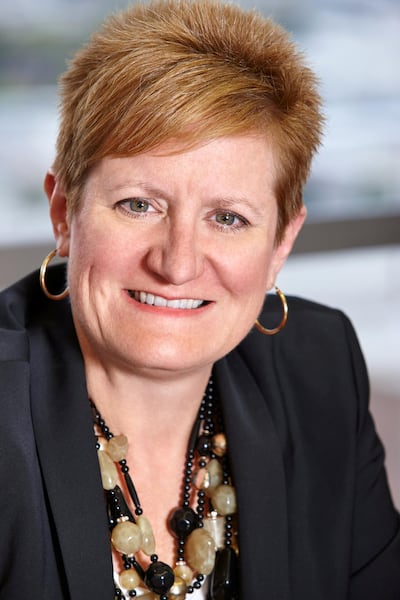It is a time of volatility for financial markets and investors will need to patiently pick their way through this year if they are to be rewarded, according to one of the world’s top female investment portfolio managers.
Last year, the synchronised actions of central banks stopped a recession, steadying the global economy. While it is now on an upward trajectory, a combination of low interest rates and the pumping of liquidity into the system, particularly in the US, has created an asset bubble.
“This is cause for some pretty significant concern as we go into 2020,” said Anne Walsh, chief investment officer at Guggenheim Investments, during the World Economic Forum annual meeting in Davos.
“We are seeing what I call cracks in the system. This liquidity isn’t helping all stocks. In the US, large cap growth [stocks] are doing well, small cap value are doing badly. One is up well into the double digits, the other is down 20 plus per cent. It is very uneven.”
Citywire has ranked her as the top female fund manager based on the $185 billion in investments that she oversees. She is also ranked fifth based on the performance of those investments. Citywire tracked 16,084 portfolio managers in 2018, 10.3 of which – or 1,662 – were women.
Ms Walsh, who is responsible for fixed income investments, said there has been a lot of movement of capital into investment grade US credit, particularly out of Japan.

“It has really held the market up well but defaults are rising in the non-investment grade space and we are starting to see investors exhibit a preference to move away from non-investment grade debt.”
Weaker companies, also known as zombie companies, are no longer able to attract capital. A third of companies listed in the Russel 3000 index do not turn a profit.
The over stimulation by central banks to drive interest rates down has incentivised corporations and governments to over-borrow, she said.
She doesn’t anticipate another global financial crisis but said there will be a return to a normal cycle for financial markets.
“The next cycle will probably look like the early-2000s which was a corporate debt default cycle.”
These companies no longer have the financial flexibility that they had in times past, she said.
Governments around the world have also over-borrowed, she said.
“So there is a lot of leverage in the system. That’s why central banks cannot allow rates to rise even if they wanted to” because companies and governments will not be able to afford to pay for their debt.
As a result, she expects that interest rates will not move higher and could if anything go lower.
Meanwhile Americans are saving more than ever before, chastened by their experiences during the financial crisis a decade ago.
”We’ve never seen an eight per cent savings rate in my 36-years, until recently. They were so impacted by the financial crisis they have changed their savings and buying behaviour,” she said.
Guggenheim Investments is part of Guggenheim Partners, which has a history stemming from the Guggenheim family, which made its fortune in 19th century America, and is now predominantly known for its philanthropy and patronage of the arts.
Prior to joining Guggenheim Investments in 2007, Ms Walsh had roles at Reinsurance Group of America and Zurich Scudder Investments.
Amid the increased markets volatility this year, Ms Walsh, who has a law degree and is also an MBA, said that there are still “pockets of assets to find”.
For example, she said that ultra-luxury property, units of which in some cities in the US are reportedly sitting empty, could reward a patient investor.
“Infrastructure is a great investment for people with patient capital all around the globe,” she said.
This includes transportation, renewable energy and energy transmission, aviation, and shipping infrastructure.
“It tends to perform well as an asset class regardless of where you are in timeline and cycles. It is a nice anchoring asset in a portfolio,” she said.
She is increasingly evaluating for environmental, social and governance factors when deciding on investments and these are risks that investors should be more aware of amid the effects of climate change.


